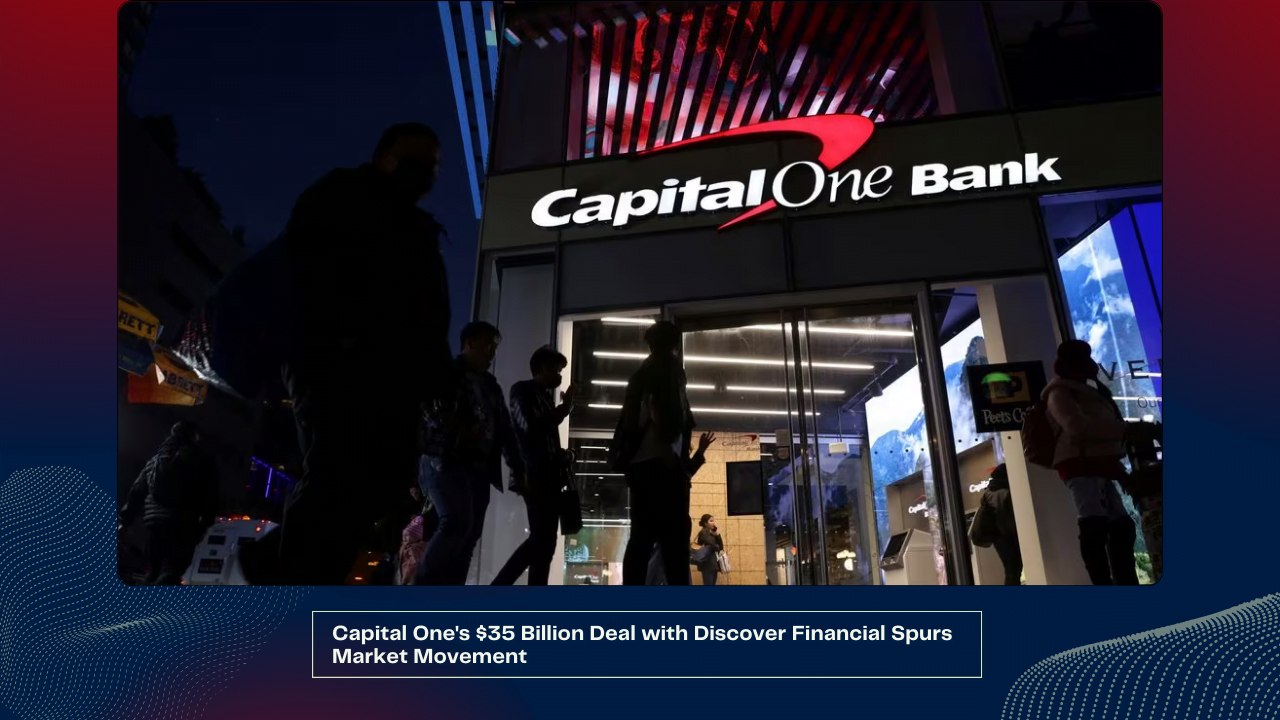
Capital One’s $35 Billion Deal with Discover Financial Spurs Market Movement
Capital One Financial’s groundbreaking $35.3 billion deal with Discover Financial promises to shake up the payments industry, triggering shifts in stock values across key players like Visa and Mastercard. This strategic move by Capital One could usher in a new era of competition, potentially altering the landscape of the payment processing sector.
Key Highlights:
- Game-Changing Acquisition: Capital One’s acquisition of Discover Financial signifies a significant milestone in the payments industry, creating the largest credit card issuer in the United States. This bold move positions Capital One as a formidable contender against established giants like Visa and Mastercard.
- Regulatory Implications: The deal is poised to encounter regulatory scrutiny, given its potential to reshape the competitive dynamics of the market. While Capital One CEO Richard Fairbank remains optimistic about regulatory approval, lawmakers like Democratic Senator Elizabeth Warren have voiced concerns about potential threats to financial stability and competition.
- Market Reaction: Following the announcement, stock prices experienced notable fluctuations, with Visa shares declining by 1.2% and Mastercard witnessing a 3.5% decrease. Conversely, Discover shares surged by 12.6%, reflecting investor optimism surrounding the deal’s prospects.
- Investor Sentiment: Despite uncertainties surrounding regulatory approval, some prominent investors, including Harris Associates, have expressed confidence in the deal’s successful completion. They believe that the acquisition will foster a more competitive environment and drive substantial returns in the long term.
- Operational Synergies: The integration of Capital One and Discover is expected to yield significant operational efficiencies, with projected savings in operational costs. This synergy underscores Capital One’s commitment to navigating complex regulatory hurdles in pursuit of substantial returns.
Regulatory Landscape and Market Dynamics:
- Regulatory Scrutiny: Regulatory bodies like the Federal Reserve and the Office of the Comptroller of the Currency will play a crucial role in determining the fate of the deal. While they have yet to provide official commentary, heightened scrutiny is expected given the deal’s implications for market competition.
- Investor Confidence: Despite concerns raised by regulatory bodies and lawmakers, investor sentiment remains cautiously optimistic, with many viewing the deal as a strategic move to foster greater competition and innovation in the payments industry.
- Operational Transition: The transition from traditional payment networks like Visa and Mastercard to Discover’s network is anticipated to be gradual, with existing partnerships likely to continue in the short term. However, Capital One’s long-term vision emphasizes the potential benefits of consolidating its card portfolio under Discover’s network.
In summary, Capital One’s ambitious acquisition of Discover Financial signals a paradigm shift in the payments landscape, with far-reaching implications for market dynamics and regulatory oversight. While regulatory hurdles loom large, the potential benefits of enhanced competition and operational synergies make this deal a pivotal moment in the evolution of the payments industry.